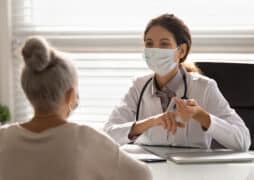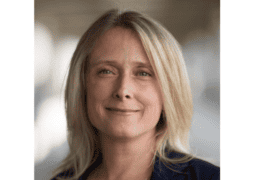For nearly four decades now, the country has recognized October as National Breast Cancer Awareness Month. It is an annual time devoted to educating everyone about breast cancer and the importance of early detection. This message is shared broadly, because we know one in eight women will be diagnosed with breast cancer at some point in their lifetime – that’s one person in the U.S. every 12 minutes.
While we know two most common greatest risk factors of breast cancer are being born female and getting older, we also know it doesn’t discriminate. It can affect people of every race, ethnicity, socioeconomic status and age. So yes, being aware of the disease, understanding your risk of breast cancer, how to recognize changes in your breasts, and what to do about those changes, are all important.
Yet the last year has taught us there’s much more we need to do. Decades of progress in early detection and treatments have made a significant impact in mortality (death) rates – they’ve dropped 41 percent in the U.S. since 1989. The COVID pandemic, however, threatens to upend so much progress in regular screenings, treatment and research.
At the same time, the pandemic has highlighted tragic challenges in the breast health of rural and low-income people across the country. This is especially true for people of color. Black women in the U.S. are about 40 percent more likely to die from breast cancer than white women and now is the moment to do something about it.
Susan G. Komen encourages you to dedicate this October as a time of action, both for yourself and for others. First, get to know your family history. If there are family members who have had certain cancers or other health conditions, you could be at a higher risk of breast cancer. Tell your doctor about your family history and work with them to create a screening plan that’s right for you. You may need to be screened earlier and more often than other people.
If you are 40 years of age or older, or if your doctor has advised differently, get your mammogram every year. Imaging centers have responded to the COVID-19 crisis and implemented protocols to protect the health and welfare of patrons. If you notice a change in your breasts or surrounding areas, check with your doctor. Finding breast cancer early along with effective treatment can save your life.
One of the most important things you can do is to know what’s normal for you. Pay attention to changes in your breasts. If something doesn’t look or feel right, tell your doctor.
And a healthy lifestyle is within your control, and something that may help lower your risk of breast cancer. Pay attention to your weight, how much alcohol you drink, how much exercise you get and other healthy choices – all of them matter when it comes to your overall health and risk of disease.
If you’ve been diagnosed with breast cancer and need assistance, take action by contacting the Komen Breast Care Helpline at 1-877 GO-KOMEN (1-877-465-6636) or helpline@komen.org. There Komen Helpline provides emotional support, guidance to resources such as financial help through Komen’s Treatment Assistance Program, access to a patient navigator, and more.
If you are not in need of help, but instead want to take this moment to help others, you can join our fight to save lives. Whether it’s by supporting one of our generous corporate partners, fundraising through one of our Race for the Cure, MORE THAN PINK Walk events or our Komen 3-Day walk, participating in a fundraising challenge on Facebook or crafting a fundraiser of your own that is meaningful to you – your support can help us take action to invest in research and help those facing breast cancer today.
Together, we can help others overcome the barriers that are preventing them from getting the help and care they need. With your support, we can help ensure that no one faces breast cancer alone.



